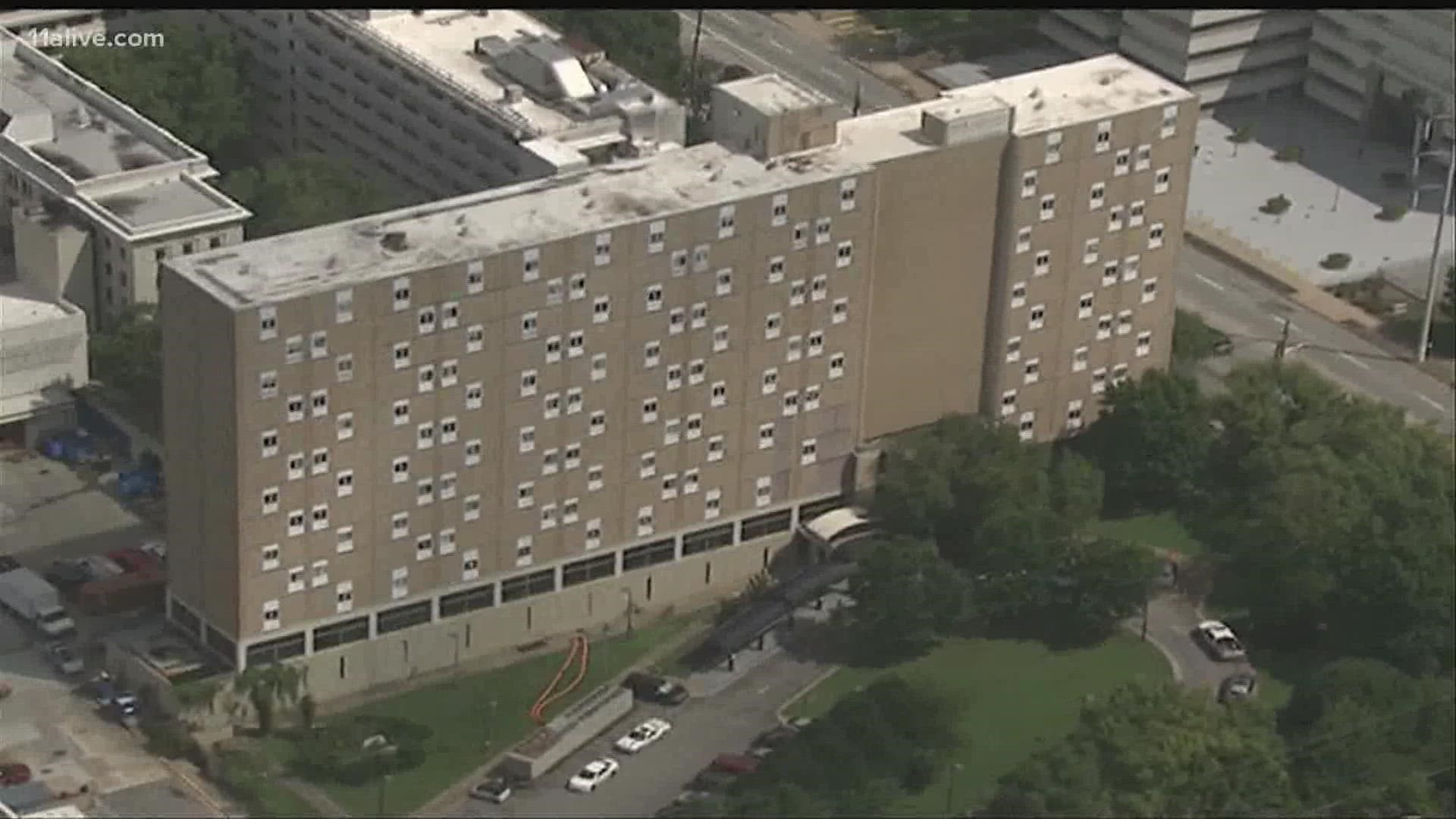ATLANTA — According to state regulators, more violations have been found at a building where a student-athlete was killed in an elevator accident.
On Friday, officials from the State Fire Marshal's office will visit the building to post a notice of the violations on the front door of the complex, making residents aware of the issues, which include both the building's elevators and boilers.
On August 31, 18-year-old JauMarcus McFarland died after being pinned between the second and third floors of 444 Highland Avenue NE.
According to state records, the elevator operated "without current state inspection or operating permit" after its inspection certificate expired in August of 2020.
The details of what possibly caused the elevator inside the building on Highland Avenue NE to fail are detailed in a report released to 11Alive by the Georgia Office of Insurance and Safety Fire Commissioner.
Investigators listed possible elevator equipment issues as possible factors, in addition to the elevator's combined passenger weight being above its listed capacity.
As a result of the incident, the building owner received several violations by the state's Insurance Commissioner's Office, including failing to notify the agency in a timely manner when the accident took place.
"These instances have demonstrated a pattern of disregard by building management of both State Law and the Rules and Regulations of this Agency. The safety of the residents of 444 Suites Student Housing is our number one priority and we will continue to explore any and all available actions to ensure management provides them with safe and properly functioning elevators and boilers," the Insurance Commissioner's Office said in a statement.
The initial violations led to a $5,000 fine against Sohanna Management, which has owned and operated the building since around December 2020. On Friday the Insurance Commissioner's Office said they had applied an additional $7,500 in two separate fines for violations involving the boilers and for using unlicensed technicians to service the elevators.
A September 2 post-incident inspection on the building's second elevator, which was out of service, resulted in 16 additional violations. According to the Insurance Commissioner's Office, elevator service technicians that were present on-site and contracted for maintenance and repairs to elevators were unlicensed.
Meanwhile, a September 13 inspection of the building's boilers revealed a total of 10 violations for all five boilers. Those violations included boilers being installed without permits or inspections, incomplete installation, and one boiler that needed to be taken out of service entirely.
A spokesman with the state insurance commissioner's office said the boiler inspection occurred in reaction to the elevator incident.
"It's standard practice in the event of an accident like this for us to inspect anything else on site that falls under our authority, which is what triggered the inspection of the boilers at 444 Highland," Weston Burleson wrote 11Alive by e-mail.
According to Burleson, when asked by the state regulators who installed and maintained the boilers, the building manager declined to provide any information.
Days later, on September 27, the building owner and building manager contacted the insurance commissioner's office, questioning why their second elevator was required to receive a 5-year test, according to the insurance commissioner's office, which is an in-depth inspection of the elevator and associated equipment.
The Chief Safety Engineer advised them that the test was out of precaution based on the tragic accident with their first elevator.
The Chief Safety Engineer also questioned how the residents were getting hot water during that call, considering all the boilers should have been out of service.
When building management failed to provide a "reasonable answer," a second inspection was conducted on September 28, allegedly finding a boiler had been put back in service, despite an order to cease its use.
Residents 11Alive talked with Thursday evening said they had not received any notification from building management about issues with the building's boilers. Still, within the past day, they noticed they no longer had access to hot water.
Multiple boiler industry experts 11Alive talked with on Thursday said worst-case scenario; a malfunctioning boiler could lead to an explosion which is why the state would order it not to be used until properly inspected and a permit for use is issued.
When asked about the most recent report of violations and issues with the building's boilers, a spokeswoman for the building's management team told 11Alive they didn't have any comment at this time.

